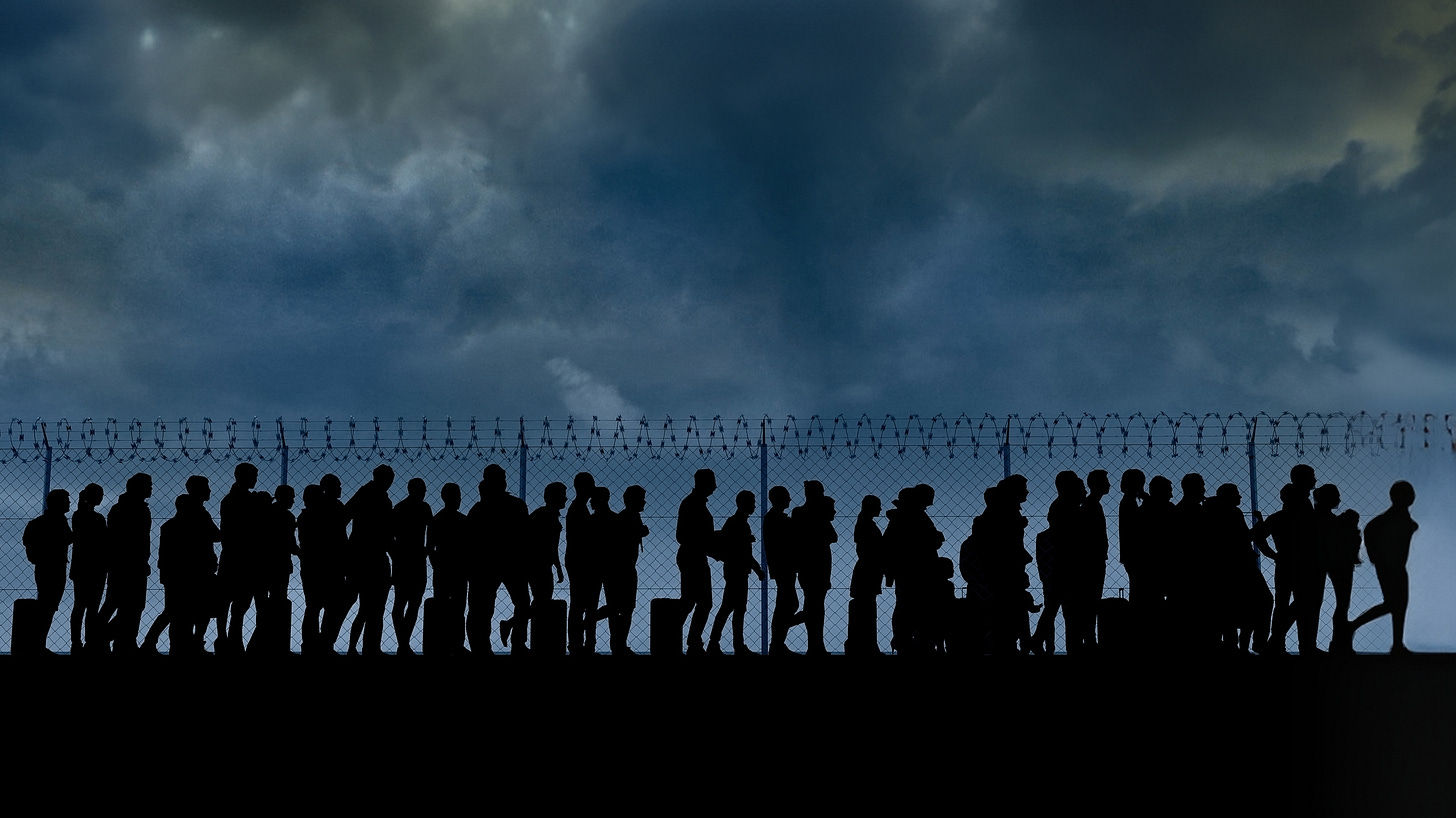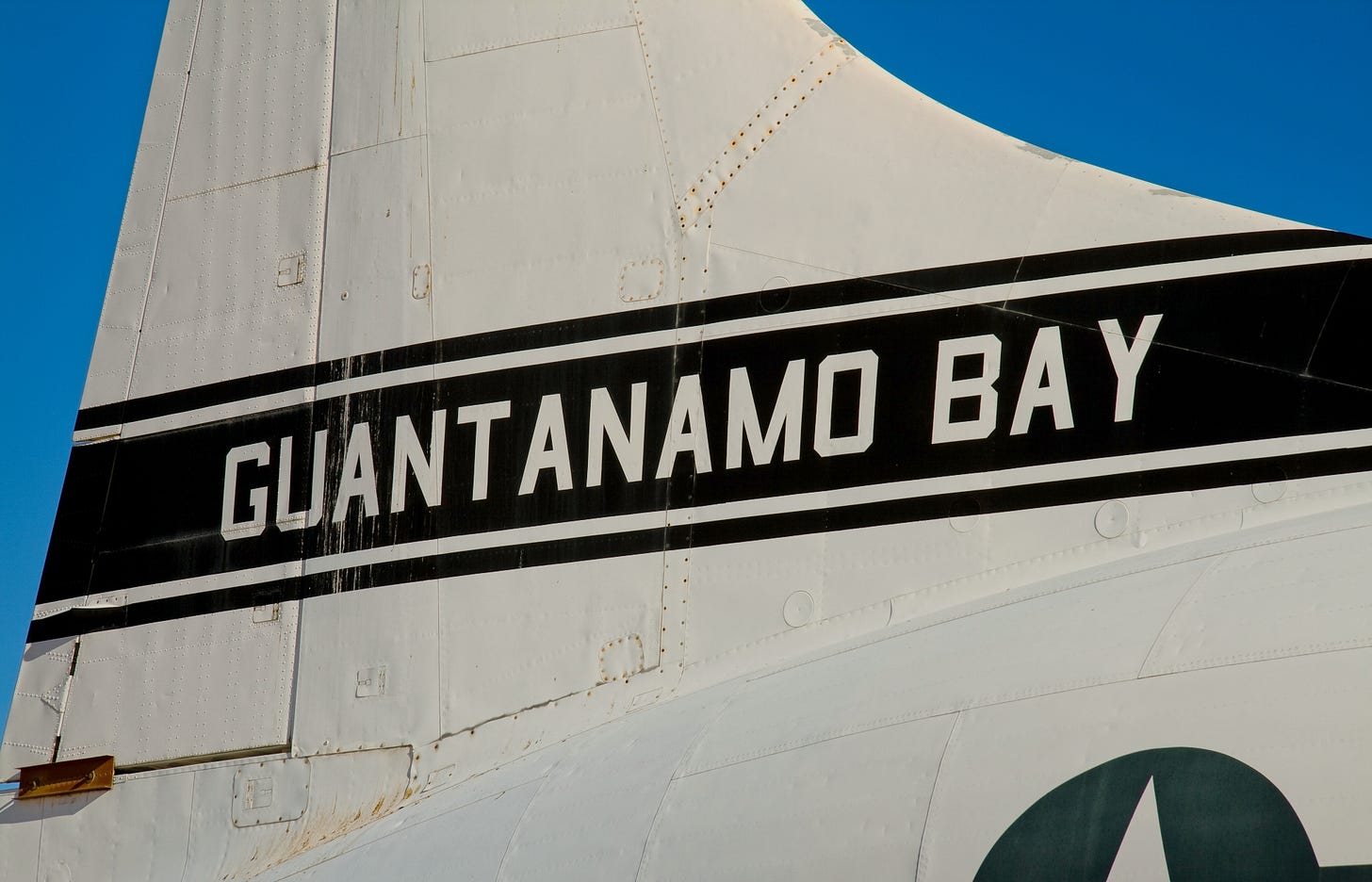United States President Calvin Coolidge signed the Johnson-Reed Immigration Act on May 24, 1924, and it went into effect two days later. That was roughly three years after my father immigrated from a shtetl in what’s now Belarus.
The new law set the first comprehensive numerical limits on immigration in U.S. history and introduced a highly restrictive quota system based on national origins. The system was deliberately designed to favor immigrants from Northern and Western Europe while restricting those from other regions, like my father.
I have no idea where he would have spent the rest of his life had he not come to the U.S. before the quota system existed. He was a refugee from the violence carried out and restrictions placed on the Jews of Eastern Europe. If he somehow made it into the U.S. 100 years ago rather than 103 years ago, he might have been what we now call an undocumented alien. So, even if I were not a practicing Buddhist, I’d have compassion for the growing numbers of refugees in today’s world.
According to the World Migration Report 2024, from 2000 to 2024:
The estimated number of international migrants rose from 150 million to 281 million.
The migrant proportion of the world population went from 2.8% to 3.6%.
The number of migrants considered refugees rose from 14 million to 35.4 million.
The number of internally displaced persons rose from 21 million to 71.4 million
This will seem like a change of subject, but bear with me as I mention the mala (prayer-bead) necklace I wore for a few years after my son Thomas died in 2015. I wore it primarily because it had been his, but it brought a surprise benefit.
The beaded necklace got conversations started with folks who knew what it was and might not otherwise talk with a stranger about religion and meditation. The usually grim and taciturn Sikh post office clerk smiled broadly now when it was my turn in line, and we discussed meditation techniques. He even recommended a teacher to me.
One day, as I checked out of a 7-11, the young clerk asked me dubiously what I do with the beads I was wearing. When I replied that sometimes I meditate with mantras, he relaxed and told me about his Hindu faith. It seemed to relieve him that he could share his deep faith with a person of European descent. I live in an area with many fundamentalist Christians, so exchanges like these don’t take place every day.
The convenience store in my town is owned and run by a couple who immigrated from South Korea. When the woman of the pair noticed my mala, she asked if I was a Buddhist and told me she had been one in Korea but became Christian after moving to the U.S.
For understandable reasons, it’s no longer cool to call the United States a melting pot. We don’t want a country that melts into a uniform blob, but wouldn’t it be great if the United States, Germany, Canada, France, the United Kingdom, Australia, and Spain—countries now experiencing an influx of migrants—could become cultural blends? To quote John Lennon:
You may say I’m a dreamer, but I’m not the only one.
My dream is a culture of acknowledging each other’s racial, ethnic, and religious roots (or lack of roots) with a sense of appreciation and curiosity (as happened on a small scale when I wore my mala). In the Buddha’s lifetime, in his communities of students, he treated Brahmins (the priestly class of his day) and Dalits (those so low on the hierarchy that they were considered classless) the same. A member of the Shakya clan, he welcomed those of other clans and tribal confederacies.
He taught that all of us have the same potential for enlightenment. You may say that he was a dreamer, but 2,500 years later, he is still not the only one, although the world still is not ready to live his dream. I’m not an expert on Christianity, but I think Jesus had a similar dream, as did Martin Luther King Jr. and many others.
Getting back to migration, yes, there is currently a problem because so many people are funneling from the many areas of poverty, hunger, and turmoil into the limited number of nations willing and able to accept them. The needs of the migrants are overwhelming.
As long as the receiving countries figure out how to manage the flow and incorporate the newcomers, the problem becomes its own solution. As I observed by living in New York City from 1970 to 1990, the inflow of refugees enriches the culture for all.
As I write this, news is breaking that the Trump Administration is preparing to start moving migrants to detention facilities in Guantanamo Bay, Cuba, as soon as 30 days from now. Trump plans to build a facility there for up to 30,000 immigrants. This brings to mind the awful history of internment camps for Japanese Americans during the Second World War. It’s a history decent Americans deeply regret. If Trump succeeds in demonizing and interning immigrants, Americans of the future will deeply regret it.
If my father didn’t find refuge in the U.S. until a few years later than he did and entered by sneaking across a border, maybe I’d be among those on a list to be headed to Gitmo.
From the Pure Land has thousands of readers and subscribers in 40 U.S. states and 18 countries, and the podcast has thousands of listeners in 55 countries.
The Buddha emphasized the joy of giving. Dana is not meant to be obligatory or done reluctantly. Instead, dana should be performed when the giver is “delighted before, during, and after giving.” —Gil Fronsdal.
Consider being delighted by paying for your subscription even though you’ll receive the same regular content as those with a free subscription. For $5 a month or $50 a year, you’ll contribute to Mel’s expenses and see parts of his book Slicing and Dicing Buddhism as it progresses.
Share this post with a friend.
Listen and subscribe to the From the Pure Land podcasts via your favorite app or by clicking here.



